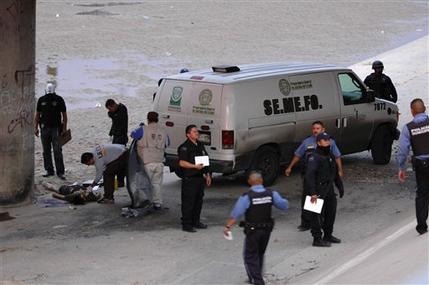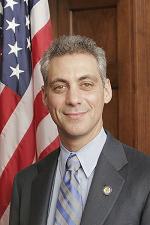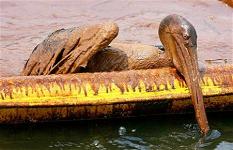CIUDAD JUAREZ, Mexico A spokeswoman for the FBI tells The Associated Press that Mexican soldiers pointed their rifles and chased away U.S. Border Patrol agents investigating the shooting of a 15-year-old Mexican.The boy was shot by a Border Patrol agent who says he was defending himself from rock throwers along the nearly dry Rio Grande that divides Ciudad Juarez, Mexico, from El Paso, Texas.
 FBI spokeswoman Andrea Simmons said Wednesday that Border Patrol investigators were forced to leave the scene Monday night after soldiers aimed guns at them from across the river.Mexicans are seething over the second death of a countryman at the hands of U.S. Border Patrol agents in two weeks, a shooting near downtown El Paso that is threatening to escalate tensions over migrant issues.U.S. authorities said Tuesday a Border Patrol agent was defending himself and colleagues when he fatally shot the 15-year-old as officers came under a barrage of big stones while trying to detain illegal immigrants on the U.S. side of the Rio Grande.
FBI spokeswoman Andrea Simmons said Wednesday that Border Patrol investigators were forced to leave the scene Monday night after soldiers aimed guns at them from across the river.Mexicans are seething over the second death of a countryman at the hands of U.S. Border Patrol agents in two weeks, a shooting near downtown El Paso that is threatening to escalate tensions over migrant issues.U.S. authorities said Tuesday a Border Patrol agent was defending himself and colleagues when he fatally shot the 15-year-old as officers came under a barrage of big stones while trying to detain illegal immigrants on the U.S. side of the Rio Grande.
About 30 relatives and friends gathered late Tuesday to mourn Sergio Adrian Hernandez Huereka, who died Monday on the Mexican side of the river border with Texas.”Damn them! Damn them!” sobbed Rosario Hernandez, sister of the dead teenager, at a wake in the family’s two-room adobe house on the outskirts of Ciudad Juarez.
Preliminary reports on the incident indicated that U.S. officers on bicycle patrol “were assaulted with rocks by an unknown number of people,” Border Patrol Special Operations Supervisor Ramiro Cordero said Tuesday.”During the assault at least one agent discharged his firearm,” he said. “The agent is currently on administrative leave. A thorough, multi-agency investigation is currently ongoing.”
The shooting happened beneath a railroad bridge linking the two nations, and late Tuesday night a banner appeared on the bridge that said in English: “U.S. Border Patrol we worry about the violence in Mex and murders and now you. Viva Mexico!”Less than two weeks ago, Mexican migrant Anastasio Hernandez, 32, died after a Customs and Border Protection officer shocked him with a stun gun at the San Ysidro border crossing that separates San Diego and Tijuana, Mexico. The San Diego medical examiner’s office ruled that death a homicide.
Mexican President Felipe Calderon said Tuesday that his government “will use all resources available to protect the rights of Mexican migrants.”The government “reiterates its rejection to the disproportionate use of force on the part on U.S. authorities on the border with Mexico,” the president added in a statement.
On an unpaved street, gathered around Hernandez’s gray metal casket, the teen’s family called for justice.”There is a God, so why would I want vengeance if no one will return him to me. They killed my little boy and the only thing I ask is for the law” to be applied, said the boy’s father, Jesus Hernandez.
His mother was less hopeful. “May God forgive them because I know nothing will happen” to them, Maria Guadalupe Huereka said.Above the casket was a photo of the youth wearing his soccer uniform and his junior high school grade cards, which showed A’s and B’s.
His mother said he was a good student who never got in trouble. He was the youngest of five children, played on two soccer teams and had just finished junior high school, she said.Amnesty International condemned the shooting and urged the U.S. Department of Homeland Security to conduct an urgent review of the use of force by Border Patrol agents.
“This shooting across the border appears to have been a grossly disproportionate response and flies in the face of international standards which compel police to use firearms only as a last resort,” said Susan Lee, Americas director of the London-based human rights organization.Arturo Sandoval, a spokesman for the Chihuahua state Attorney General’s office, said a spent .40-caliber shell casing was found near the body – raising the question of whether the fatal shot was fired inside Mexico, although he did not explicitly make that allegation.
That would violate the rules for Border Patrol agents, who are supposed to stay on the U.S. side of the border – and it also could open the agent to a Mexican homicide prosecution.A U.S. official said video shows the Border Patrol agent did not enter Mexico.
The official, who agreed to discuss the matter only if not quoted by name, said the video also shows what seem to be four Mexican law enforcement officers driving to the edge of the dry but muddy bed of the Rio Grande, walking across to the U.S. side, picking up an undetermined object and returning to Mexico near the area where the boy’s body was. Like their U.S. counterparts, Mexican law officers are not authorized to cross the border without permission.
According to the FBI, Border Patrol agents were responding to a group of suspected illegal immigrants being smuggled into the U.S. near the Paso Del Norte bridge, across from Ciudad Juarez around 6:30 p.m. Monday.One suspected illegal immigrant was detained on the levee on the U.S. side, the FBI said in a statement. Another Border Patrol agent arrived on the concrete bank where the now-dry, 33-foot (10-meter) wide Rio Grande is, and detained a second person. Other suspects ran back into Mexico and began throwing rocks, the FBI said.
At least one rock came from behind the agent, who was kneeling beside a suspected illegal immigrant whom he had prone on the ground, FBI spokeswoman Andrea Simmons said.The agent told the rock throwers to stop and back off, but they continued. The agent fired his weapon several times, hitting one person who later died, said the FBI, which is leading the investigation because it involved an assault on a federal officer. The agent was not injured, Simmons said.
The boy was shot once near the eye, Sandoval said. Authorities were still investigating the bullet’s trajectory, he said.Sandoval said he couldn’t comment on the video reported by the U.S. official because he didn’t know anything about it. “I am unaware about those hypotheses,” he said.
Sandoval said Mexican investigators were questioning three teenagers who were with the victim at the time of the shooting.The boy’s sister, Rosario, told Associated Press Television News that her brother was playing with several friends and did not plan to cross the border.
“They say that they started firing from over there and suddenly hit him in the head,” she said.The boy’s mother said he had gone to eat with his brother, who handles luggage at a border customs office. While there, he met up with a group of friends and they decided to hang out by the river, she said.
“That was his mistake, to have gone to the river,” she said in an interview with Mexico’s Milenio TV. “That’s why they killed him.”Mexico’s Foreign Relations Department said its records indicate the number of Mexicans killed or wounded by U.S. immigration authorities rose from five in 2008 to 12 in 2009 to 17 so far this year, which is not half over.
T.J. Bonner, president of the union representing Border Patrol agents, said rock throwing aimed at Border Patrol agents is common and capable of causing serious injury.”It is a deadly force encounter, one that justifies the use of deadly force,” Bonner said. (AP)




